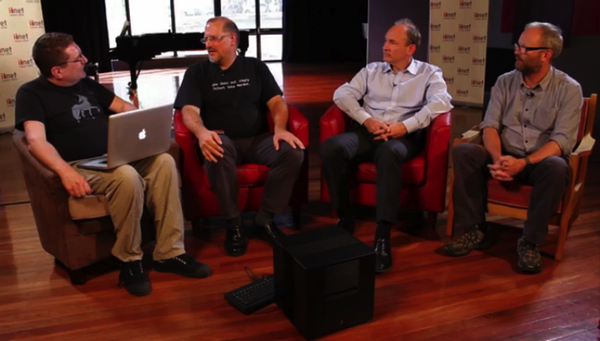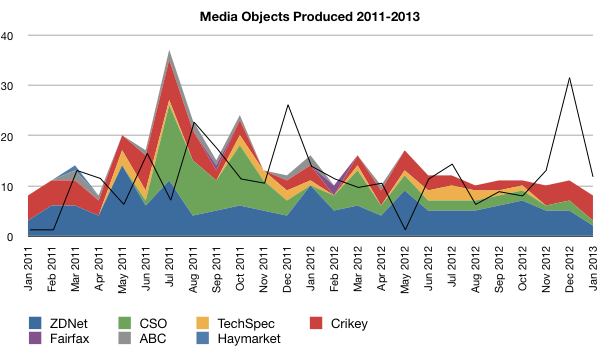![]() My recent critique of Attorney-General George Brandis’ comments about copyright reform in the digital age attracted plenty of positive comments — and also some media attention.
My recent critique of Attorney-General George Brandis’ comments about copyright reform in the digital age attracted plenty of positive comments — and also some media attention.
That critique was my ZDNet Australia column on the day of Brandis’ speech, Friday 14 February, What the Dickens will Brandis do to copyright in the digital realm?
The first piece of media interest was from Michelle Bennett, presenter of Spoke, the weekly social issues program on Melbourne community radio station 3RRR. The interview was recorded on Sunday 16 February and broadcast in the Spoke episode of Tuesday 18 February.
The conversation wasn’t just about Brandis’ comments, but also some of the background — including the so-called iiTrial between the Australian Federation Against Copyright Theft (AFACT) and internet service provider iiNet, the graduated response or “three strikes” rules for tackling copyright infringement, the Trans-Pacific Partnership (TPP) treaty, and the idea that internet access can be considered a basic human right.
I also mentioned Dr Rebecca Giblin’s research paper, Evaluating Graduated Response, which looked at those three strikes rules. The conclusion was that “there is little to no evidence that that graduated responses are either ‘successful’ or ‘effective’.”
Podcast: Play in new window | Download (Duration: 19:24 — 11.0MB)
The interview is ©2014 Triple R Broadcasters Ltd. Over at their website you can listen to the full program.



 The big internet-related story in Australia today was the High Court’s decision in the so-called #iiTrial. I wrote the
The big internet-related story in Australia today was the High Court’s decision in the so-called #iiTrial. I wrote the